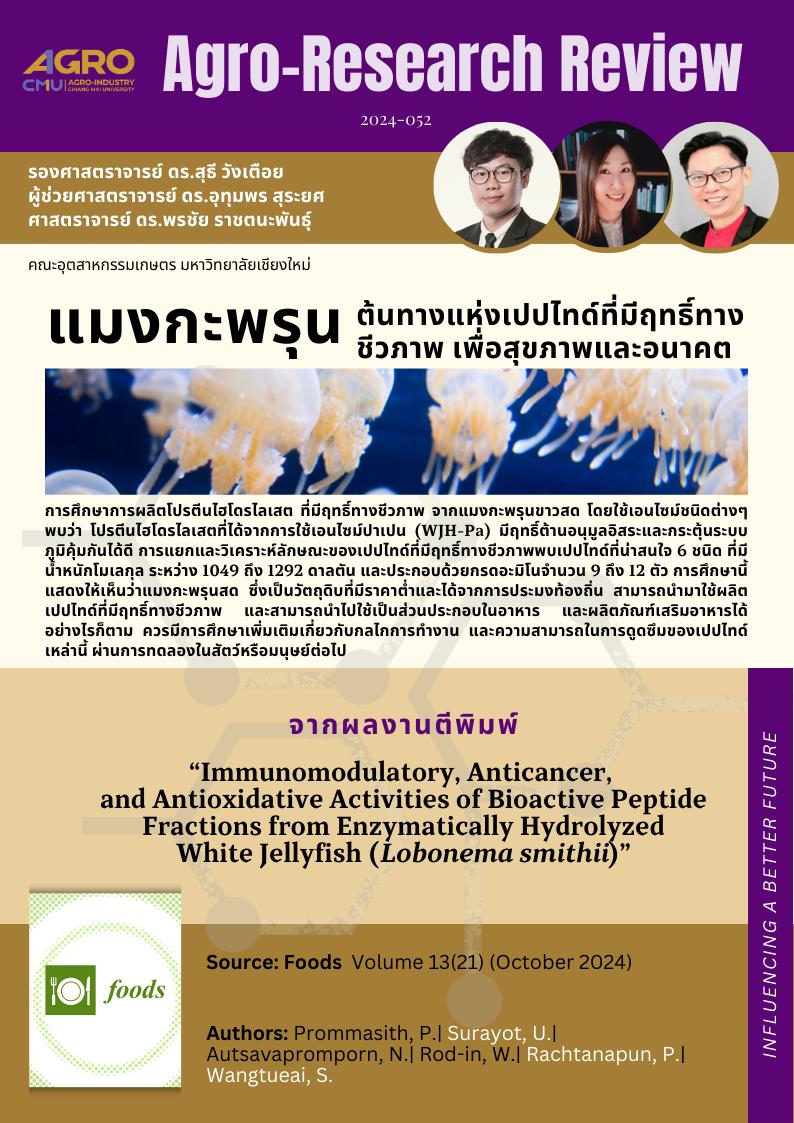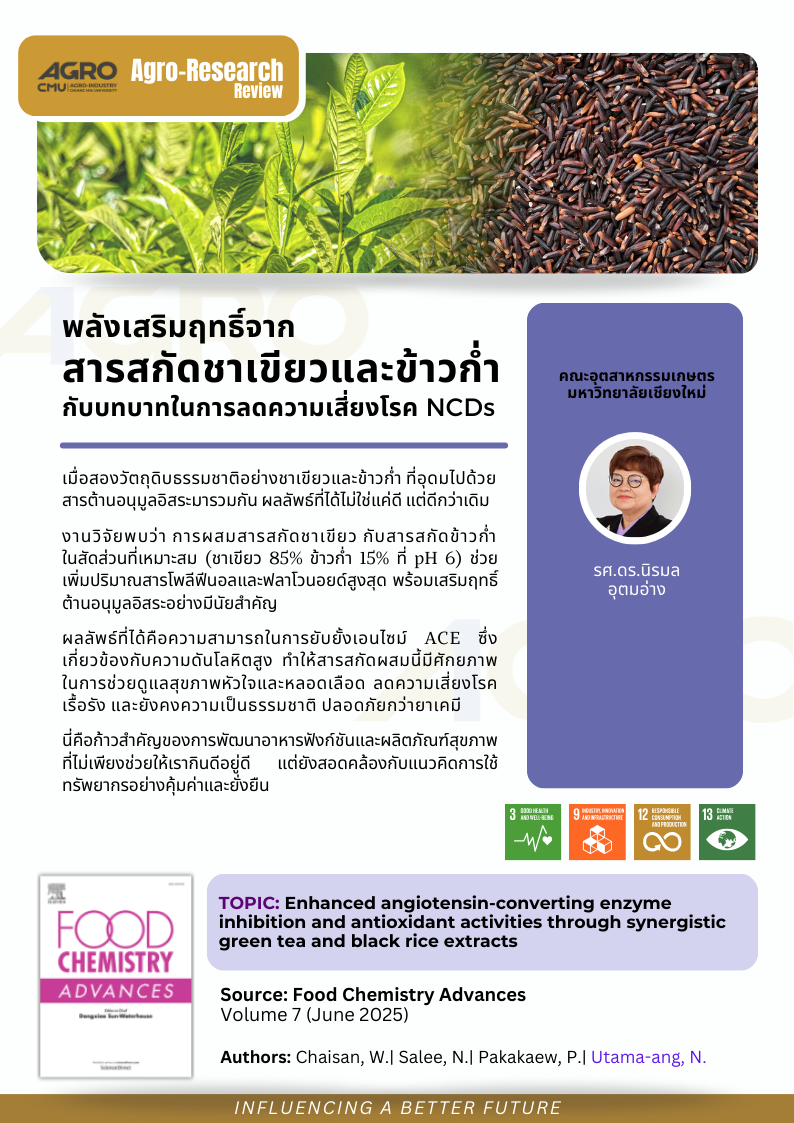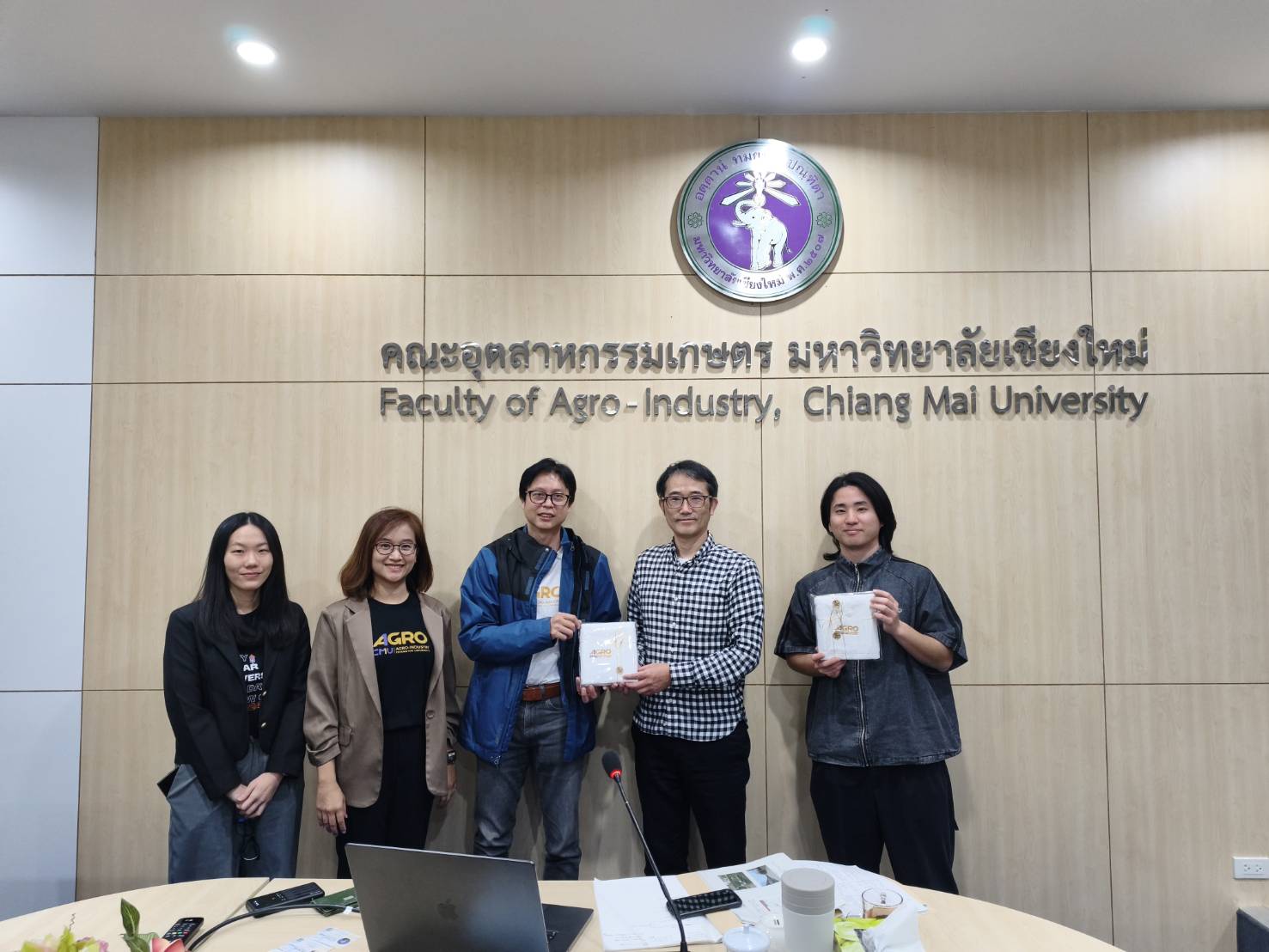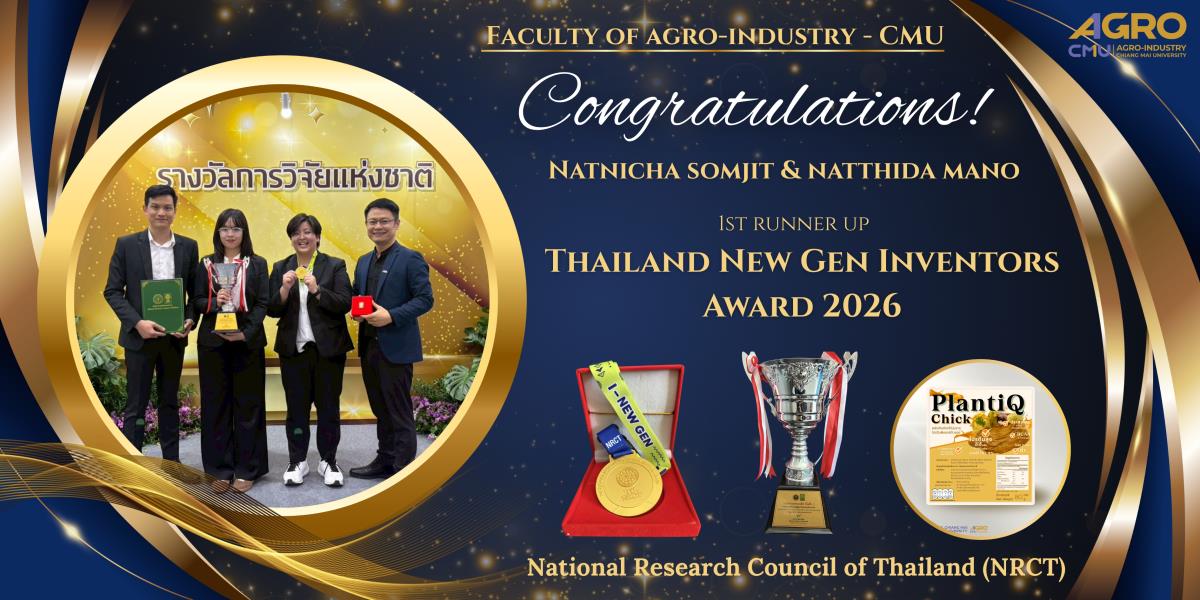
แนะนำงานวิจัย 2024-052: “แมงกะพรุน” ต้นทางแห่งเปปไทด์ที่มีฤทธิ์ทางชีวภาพเพื่อสุขภาพและอนาคต
การศึกษาการผลิตโปรตีนไฮโดรไลเสตที่มีฤทธิ์ทางชีวภาพจากแมงกะพรุนขาวสด โดยใช้เอนไซม์ชนิดต่างๆ พบว่าโปรตีนไฮโดรไลเสตที่ได้จากการใช้เอนไซม์ปาเปน (WJH-Pa) มีฤทธิ์ต้านอนุมูลอิสระและกระตุ้นระบบภูมิคุ้มกันได้ดี การแยกและวิเคราะห์ลักษณะของเปปไทด์ที่มีฤทธิ์ทางชีวภาพ พบเปปไทด์ที่น่าสนใจ 6 ชนิดที่มีน้ำหนักโมเลกุลระหว่าง 1049 ถึง 1292 ดาลตัน และประกอบด้วยกรดอะมิโนจำนวน 9 ถึง 12 ตัว การศึกษานี้แสดงให้เห็นว่าแมงกะพรุนสดซึ่งเป็นวัตถุดิบที่มีราคาต่ำและได้จากการประมงท้องถิ่น สามารถนำมาใช้ผลิตเปปไทด์ที่มีฤทธิ์ทางชีวภาพและสามารถนำไปใช้เป็นส่วนประกอบในอาหารและผลิตภัณฑ์เสริมอาหารได้ อย่างไรก็ตาม ควรมีการศึกษาเพิ่มเติมเกี่ยวกับกลไกการทำงานและความสามารถในการดูดซึมของเปปไทด์เหล่านี้ผ่านการทดลองในสัตว์หรือมนุษย์ต่อไป
A study on the production of protein hydrolysates from fresh white jellyfish using different enzymes showed that the hydrolysate obtained with papain enzyme (WJH-Pa) exhibited the strongest antioxidant activity and immune-stimulating properties. As a result, this hydrolysate was selected for further peptide isolation and bioactivity analysis. The study identified six promising bioactive peptides with molecular weights ranging from 1,049 to 1,292 Da, consisting of 9 to 12 amino acids. These findings suggest that jellyfish, a low-cost marine resource from local fisheries, can be utilized to produce bioactive peptides, which have potential applications in functional foods and dietary supplements. However, further research is needed to explore the mechanisms of action and bioavailability of these peptides through animal and human trials to confirm their efficacy and potential health benefits.
Topic: Immunomodulatory, Anticancer, and Antioxidative Activities of Bioactive Peptide Fractions from Enzymatically Hydrolyzed White Jellyfish (Lobonema smithii)
Authors: Prommasith, P.| Surayot, U.| Autsavapromporn, N.| Rod-in, W.| Rachtanapun, P.| Wangtueai, S.
Abstract:
This study aimed to develop bioactive protein hydrolysates from low-value edible jellyfish obtained from local fisheries using enzymatic hydrolysis. Fresh white jellyfish were hydrolyzed using several commercial proteases, including alcalase (WJH-Al), flavourzyme (WJH-Fl), and papain (WJH-Pa). The antioxidant, immunomodulatory, and anticancer activities of these white jellyfish hydrolysates (WJH) were investigated. The results demonstrated that the crude WJH exhibited strong antioxidant properties, including DPPH, ABTS, and hydroxyl radical scavenging activities, as well as ferric-reducing antioxidant power. Additionally, the hydrolysates showed notable immunomodulatory activity. However, all WJH samples displayed relatively low ability to inhibit HepG2 cell proliferation at the tested concentrations. Among the hydrolysates, WJH-Pa demonstrated the highest antioxidant and immunomodulatory activities and was therefore selected for further bioactive peptide isolation and characterization. Ultrafiltration membranes with three molecular weight (MW) cut-offs (1, 3, 10 kDa) were used for peptide fractionation from WJH-Pa. Six potential peptides were identified with the MW range of 1049–1292 Da, comprising 9–12 residues, which exhibited strong antioxidant and immunomodulatory activities.
Keywords: anticancer; antioxidant; immunomodulation; jellyfish; peptides; protein hydrolysate
View at publisher: https://www.mdpi.com/2304-8158/13/21/3350
#อกมช. #agrocmu #CMU





